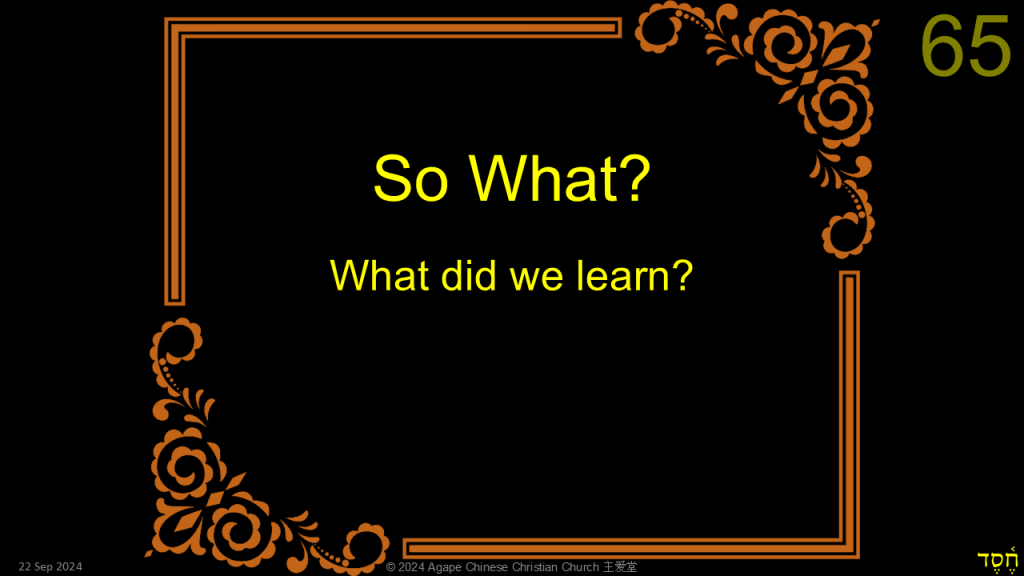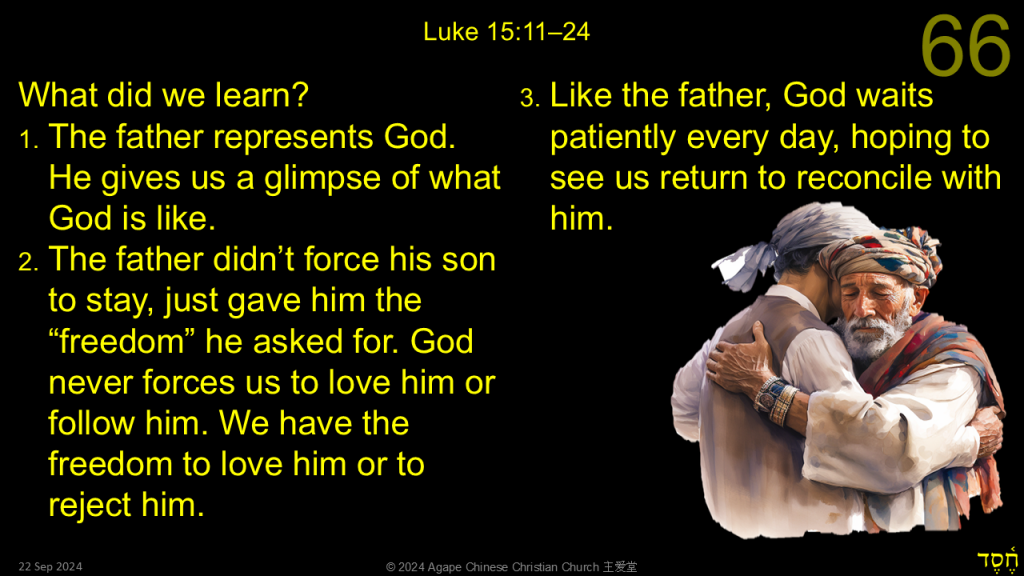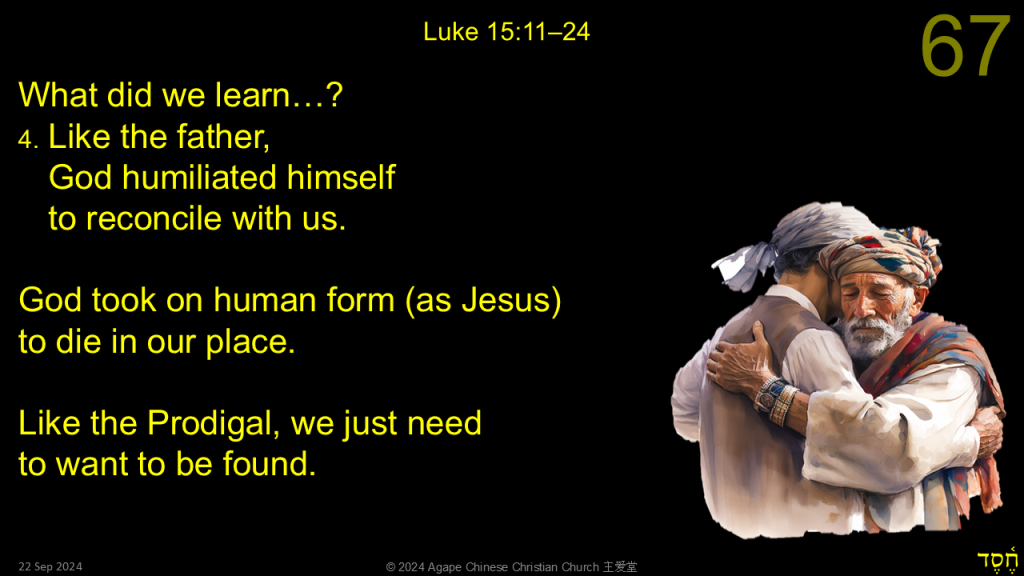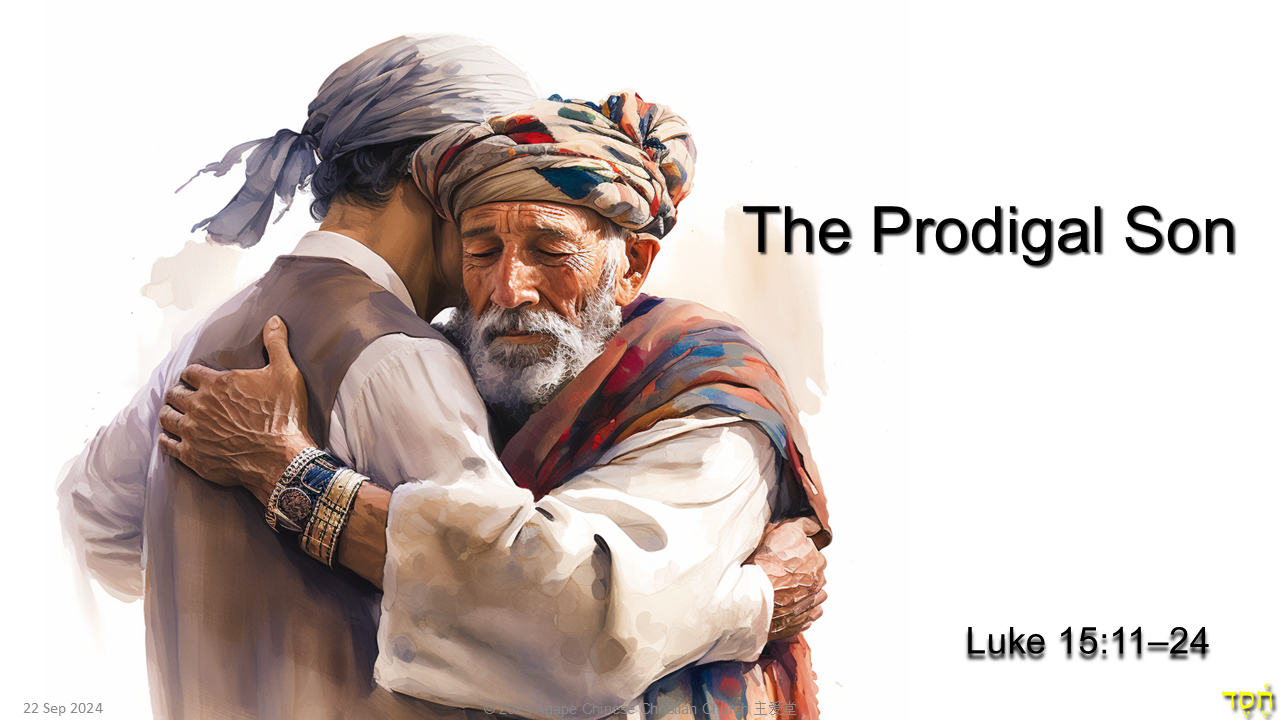The Prodigal Son
Luke 15:11–24
Remember these points
I put these points at the top of my sermon-prep template to remind myself every week:
- Show that main point of passage relates to Jesus and his saving work
- (1 Cor 1:18) A truly gospel-centred message will not be acceptable in a synagogue or mosque
- Did I proclaim the gospel as the headline news of the sermon, rather than as a “by the way…”?
- Unbelievers are called to repent, believe, and be saved
- Believers are encouraged to abandon their old self, renew their minds, put on the new self in Christ
- Preach simple sermons, so that God’s people can see Christ more clearly and love him more dearly
News
Welcome to our first English Worship!
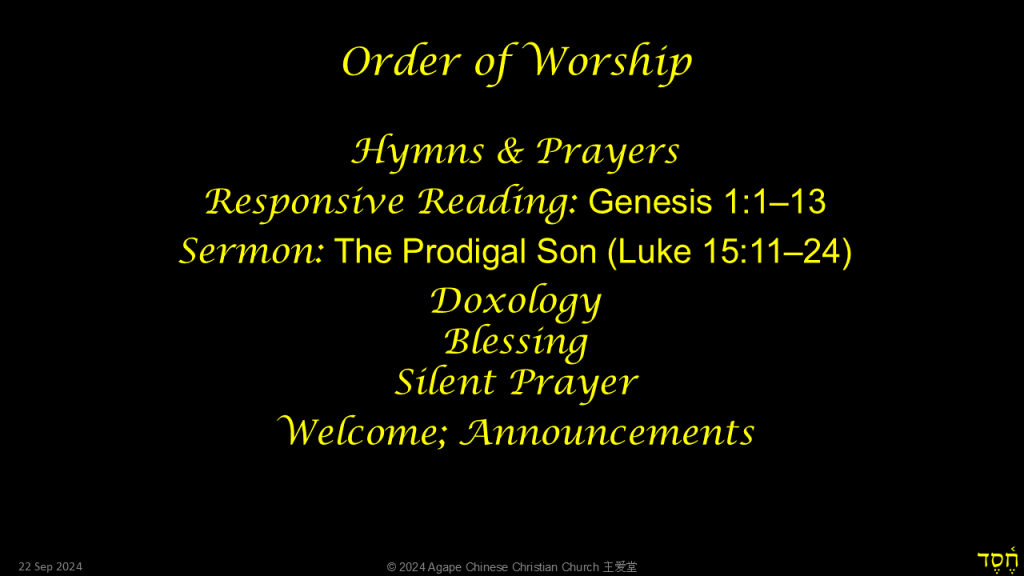
Hook
How do you read a novel? How do you read the Bible?
You start from the first page, and continue to the last page.
Some people read a few pages or chapters, then skip right to the end!
It doesn’t make sense to just pick out a chapter or paragraph here or there and start reading.
Same with the Bible. We shouldn’t just pick out stories here and there.
The Bible is one book, written by more than forty different authors over a period of almost 1,500 years.
But the Bible is also one big novel, it tells one story.
What is God like? How can we find out more about God?
The Bible tells us about God. It tells us what God is like.
One of the most powerful image of what God is like is described in the Parable of the Prodigal Son.
Passage
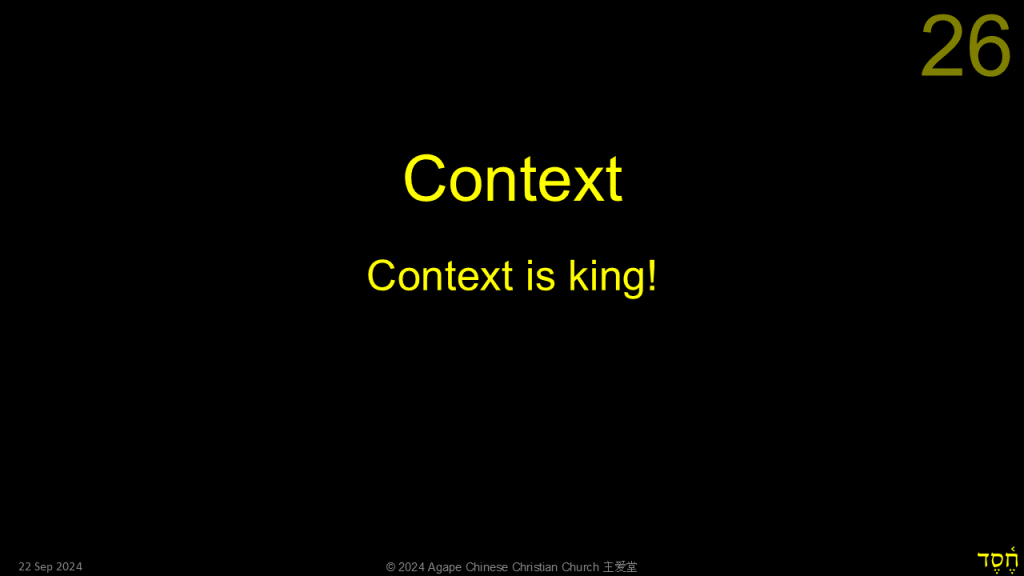
We need some context: The Prodigal Son story is one of 3 stories together
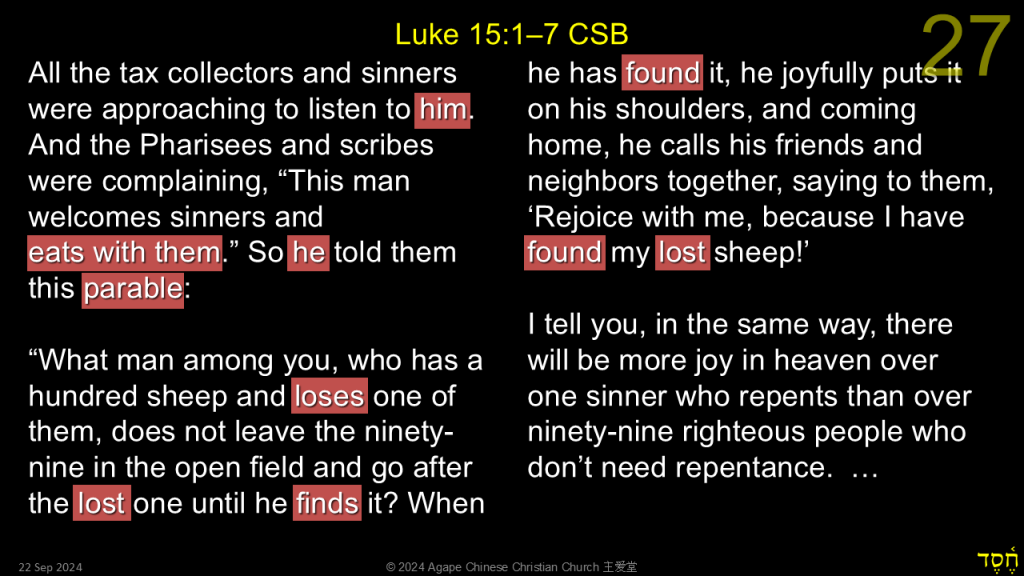
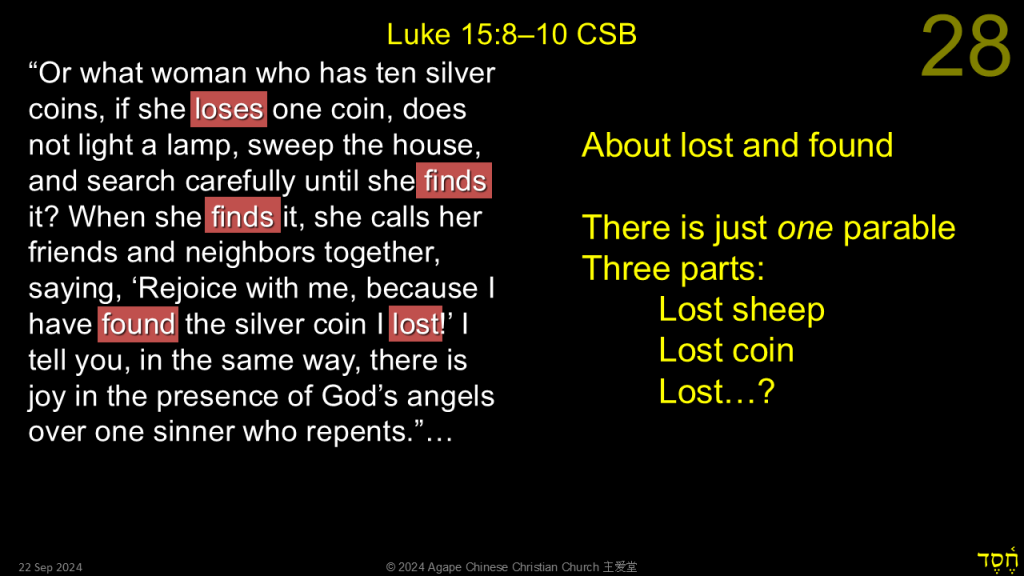
The lost sheep and the lost coin give us the context: The stories are about being lost and found.
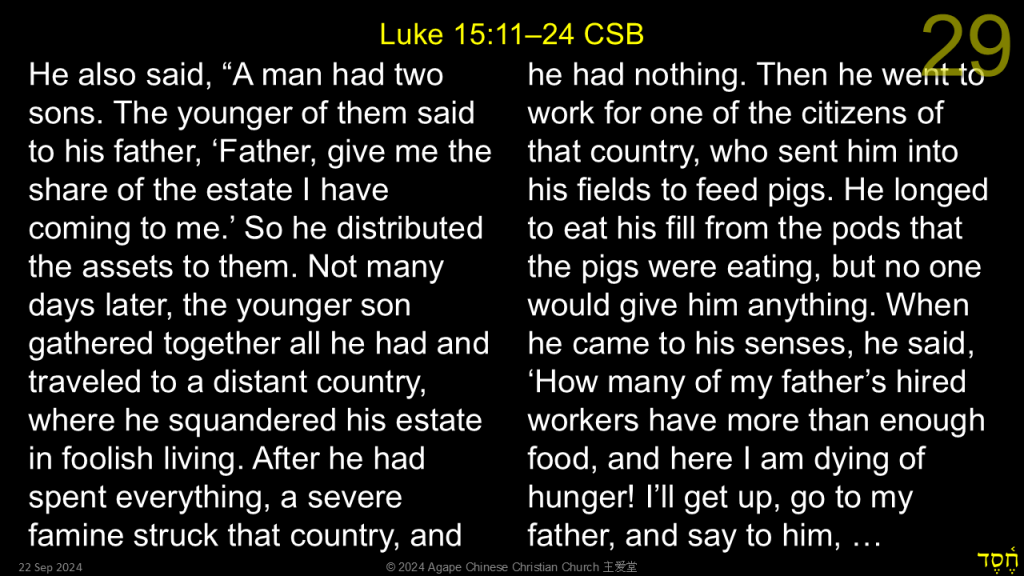
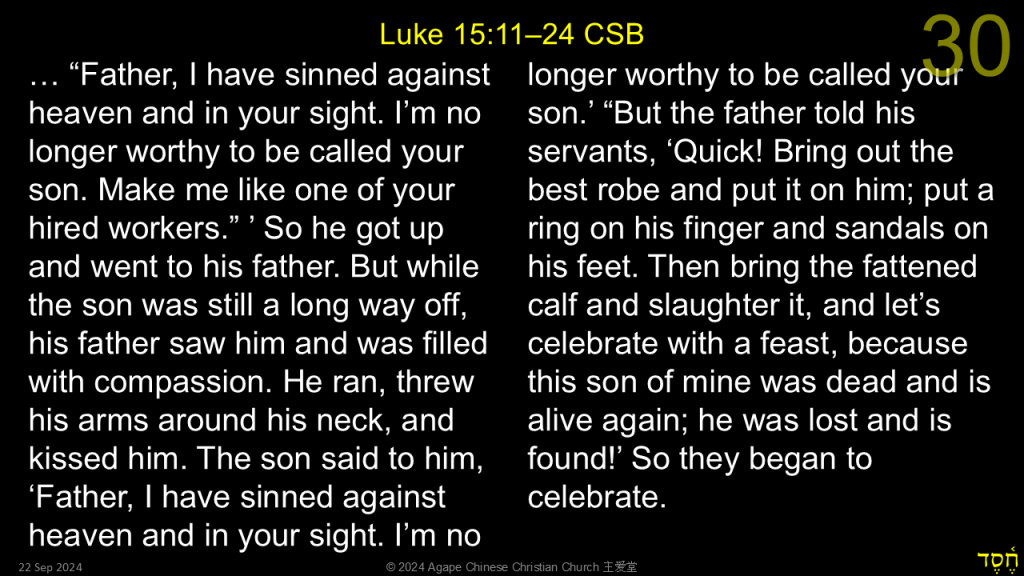
Section 1 The Death Wish
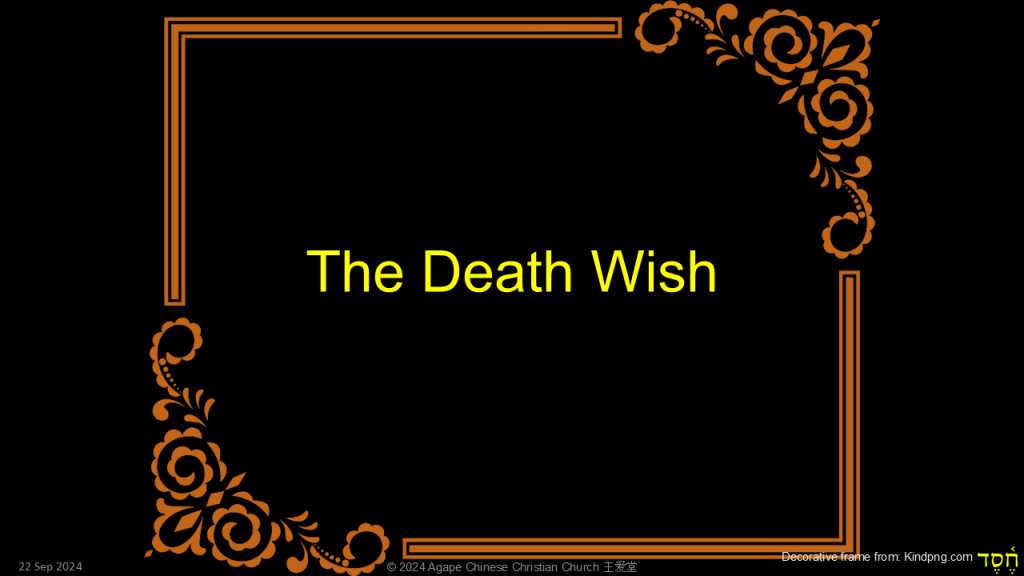
Two quick definitions:
Parable: A simple story used to illustrate a moral or spiritual lesson. (Oxford Dictionary)
Prodigal: Recklessly wasteful or extravagant, as in disposing of goods or money. (The Free Dictionary).
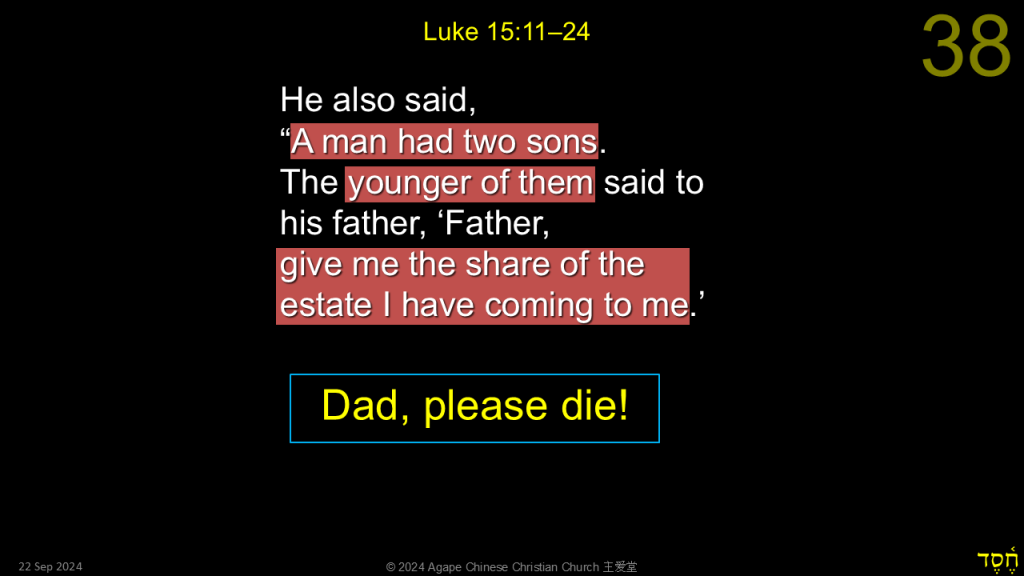
The characters are: the father, elder son, younger son.
When the younger son asked his father for his share of the estate, what’s the implication?
What would you (if you’re the father) do in this situation? What would your culture expect you to do?
He wishes his father dead!
There’s obviously problems in the family, especially between the younger son and the father.
Who would be expected to be mediator to resolve the situation?
Section 2 In the Far Country
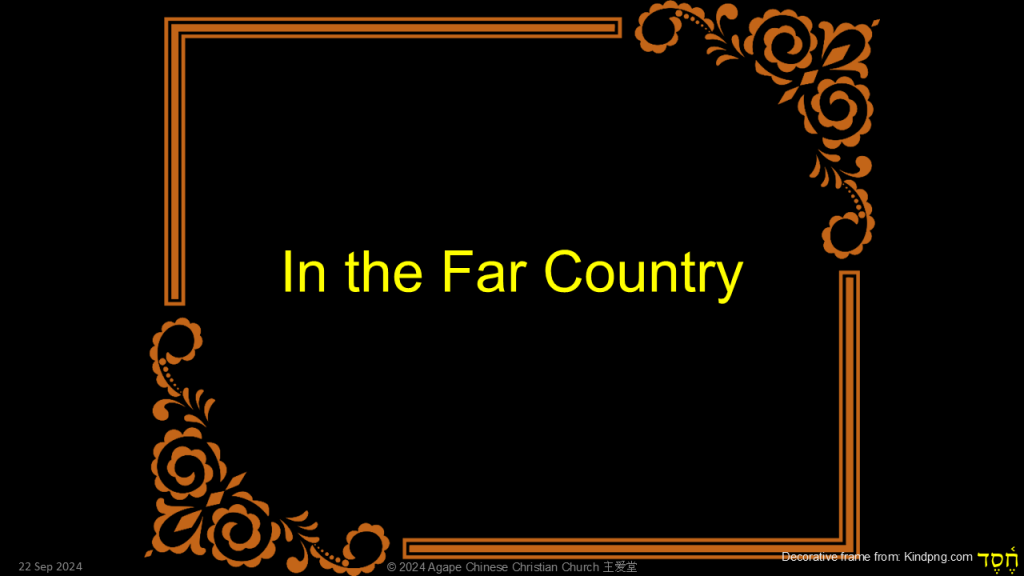
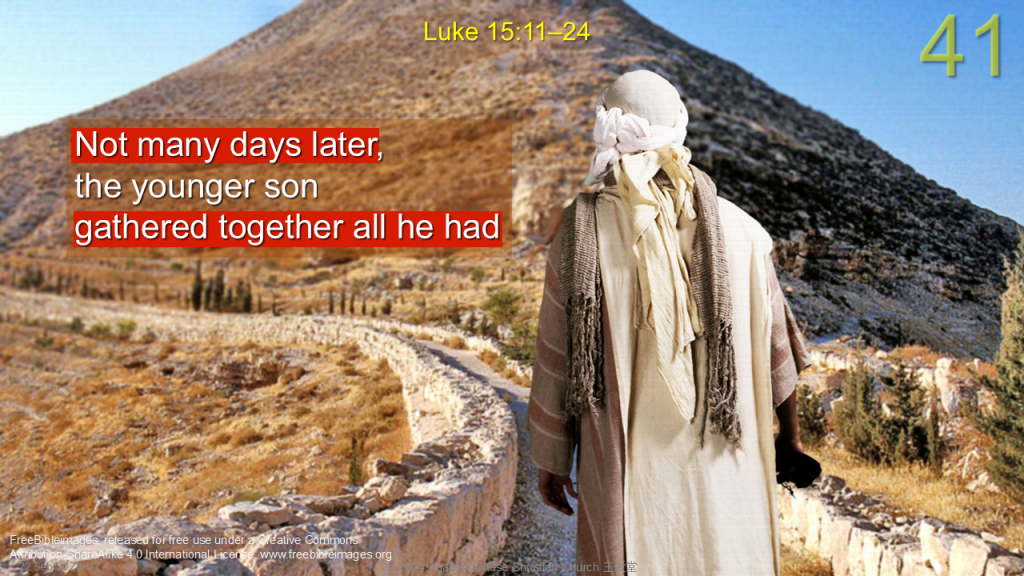
He must have sold his portion in order to get cash (he can’t leave with land!)
It would have like a fire-sale, because anyone in the village buying from him would dishonour his father.
The village would hate him for bringing shame to his father, his family, and his village.
They don’t expect him to come back, at least not without some punishment!
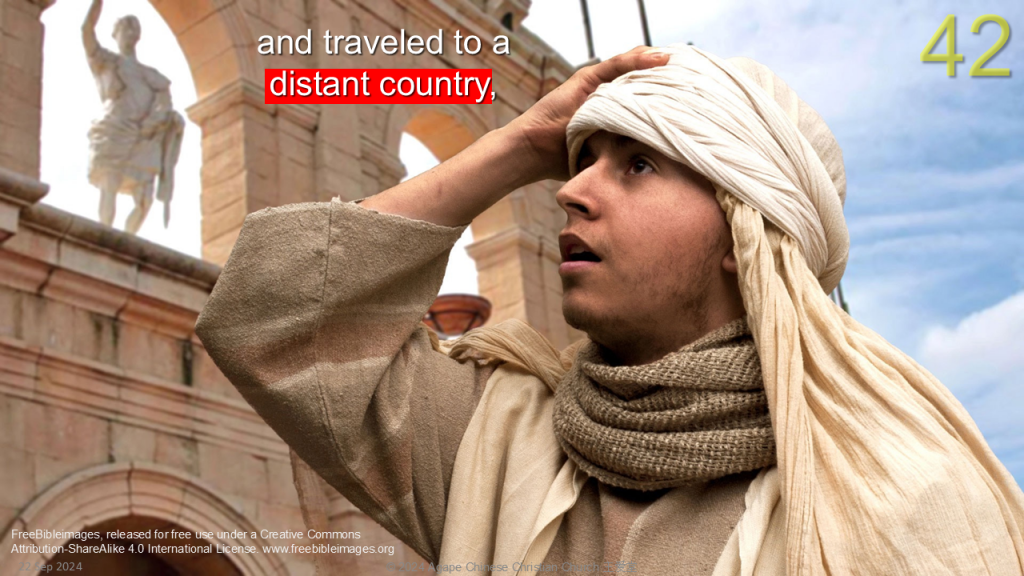
“Distant country” means he left the village, left his country, went to some other non-Jewish place.
He’s in Gentile territory. We know because later he’ll be feeding pigs (Jew don’t eat pigs).
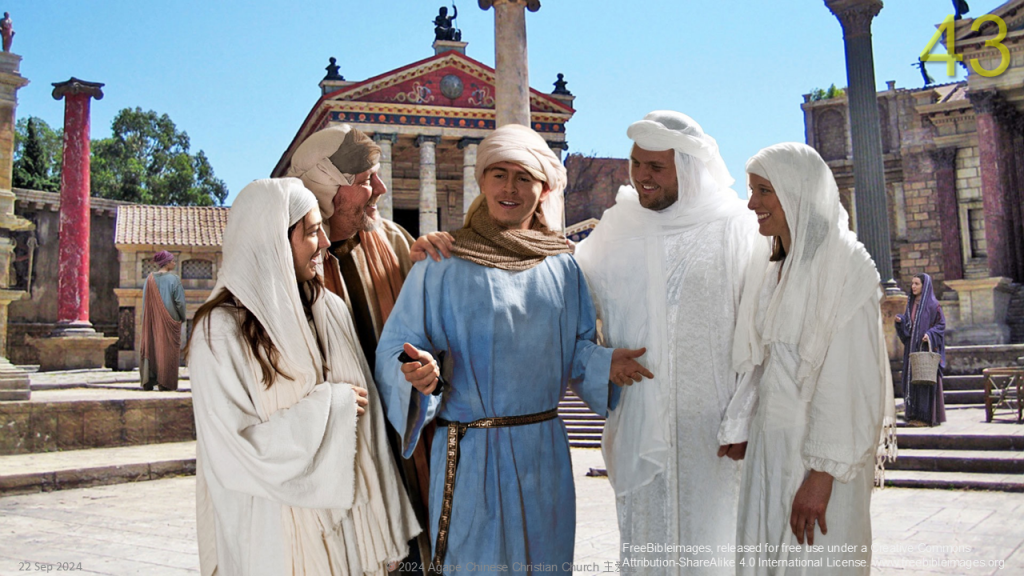
He’d have many new friends. Why do think that is? What makes him so attractive to strangers?
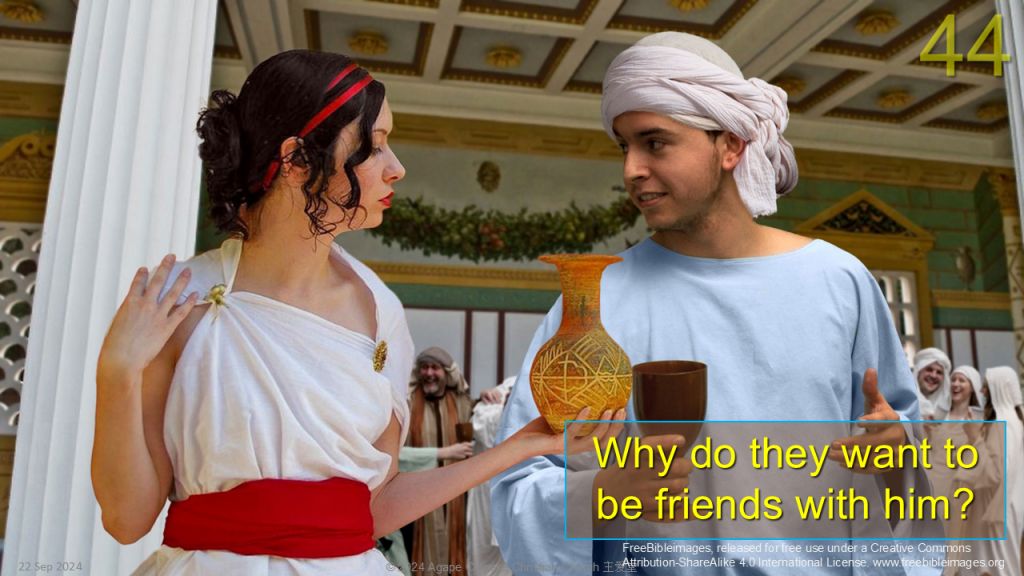
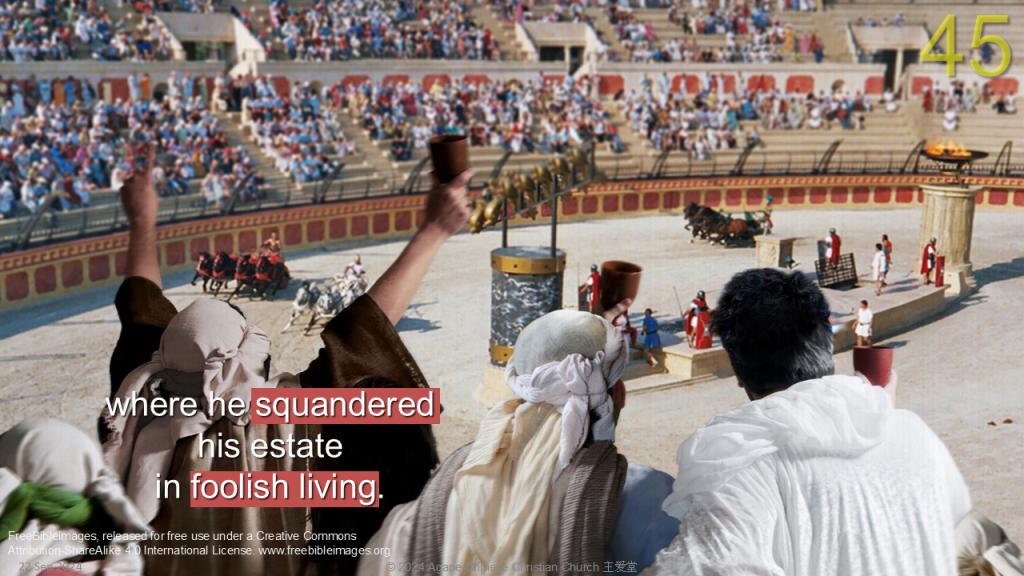
This is where the name of this parable came from: he’s prodigal with his money, so a wasteful, squandering, foolish boy. Hence the title The Prodigal Son.
He thinks he has freedom now, doing what he wants, enjoying life, enjoying his cash.
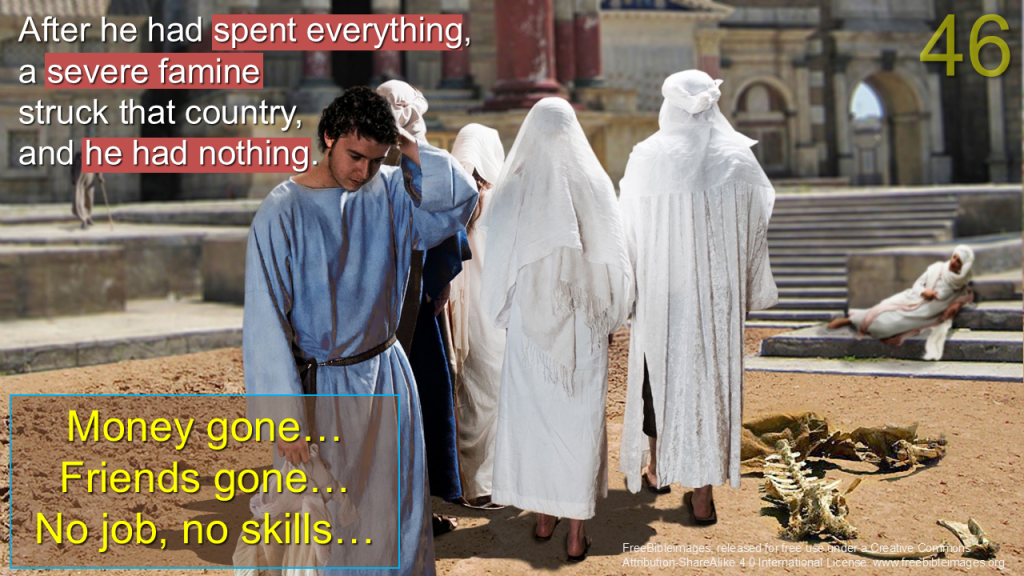
There’s a famine, a really terrible event even in our age today.
Thousands can die, an entire village can be wiped out.

The only work he can find is to feed pigs.
The pig owner probably didn’t even want to hire him (hence giving him a disgusting job in the hopes that he’d refuse and go away).
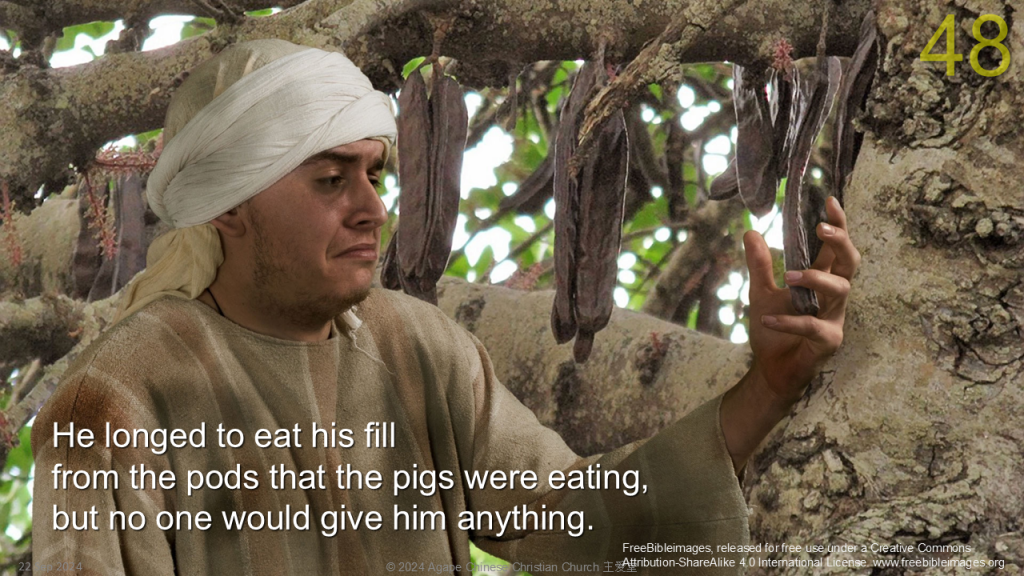
These are carob pods, extremely difficult to digest.
But in a famine situation, anything goes.
Of course, the pods are for the pigs, not for him!
Section 3 The Face-saving Plan

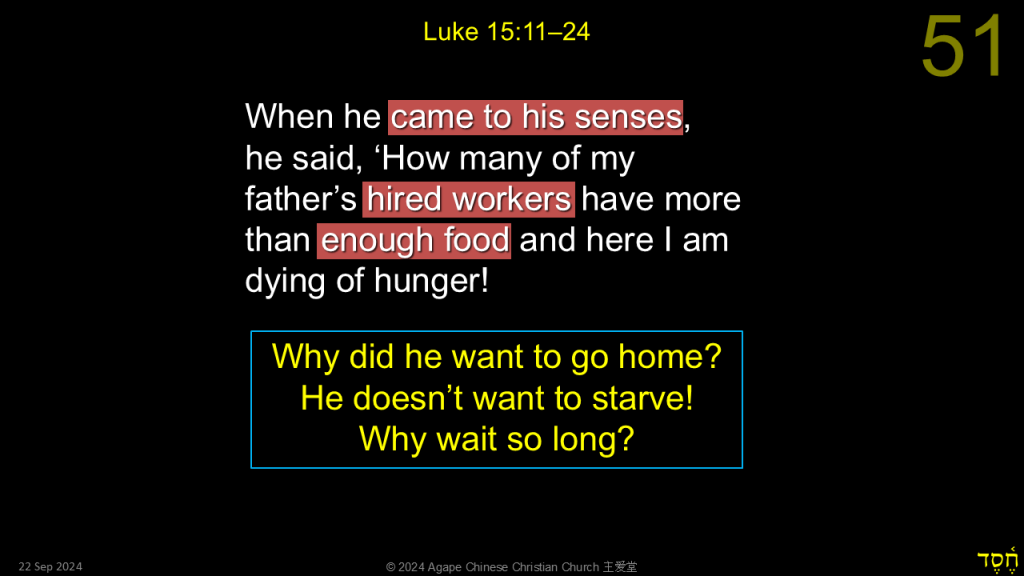
He’s slowly starving, he needs food.
He could have returned home at the start of the famine, but several things are holding him back:
- He’ll have to confront his brother. His portion of the estate is now gone, so he’ll have to suck it up and live off of his brother’s estate.
- He’ll be rejected by the village because of what he did when he left (they never forget such dishonour). He will never be accepted again.
So he’s now desperate, he needs to make the return journey while he still has some strength left.
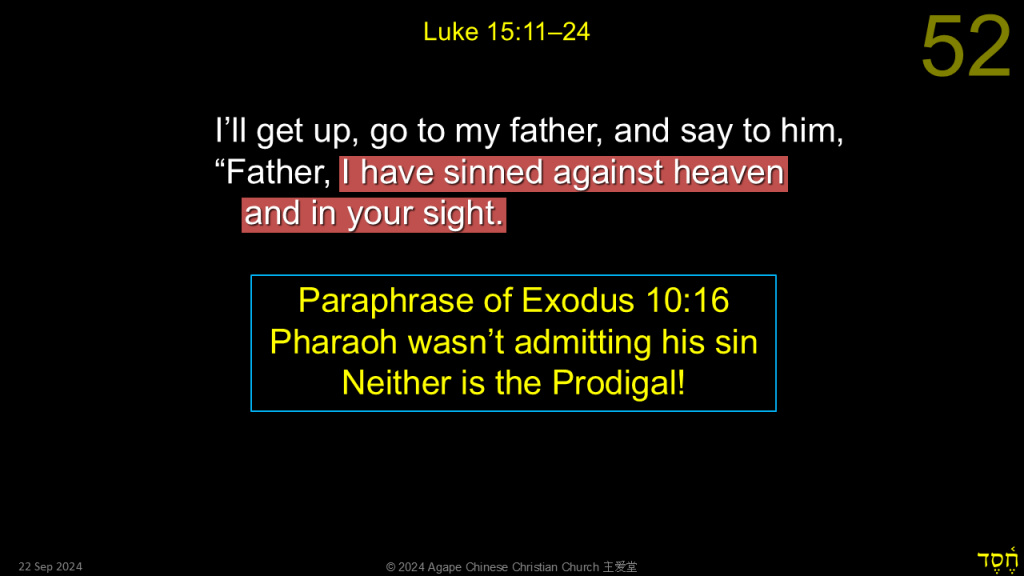
The wants his father to take him back, not as a son, but as a hired worker.
He wants to earn money to pay back what he lost, so he’s trying to make things right.
Jesus purposely made the Prodigal use the same expression as Pharaoh (back in the Exodus).
Everyone listening to Jesus knows that Pharaoh was just trying to get Moses to back off on the plagues. Pharaoh was never sorry.
This means the Prodigal wasn’t sorry either!
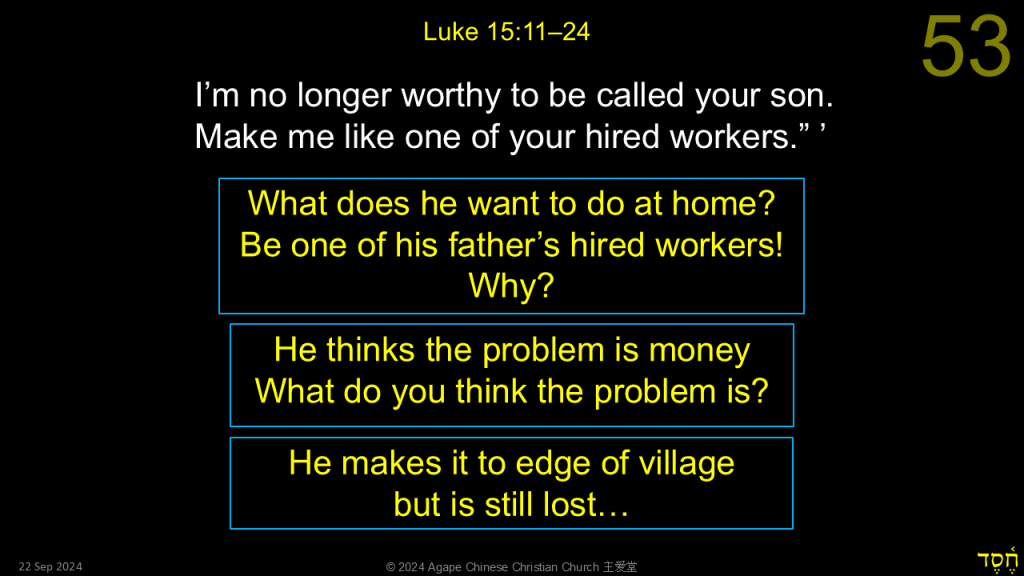
He admits he’s unworthy to be a son, so he’ll just learn a skill (in an adjacent village, because no one in his own village will ever take him as an apprentice), and try to recover the cash he lost.
He’s always thinking that the problem is the money. He’s so wrong…
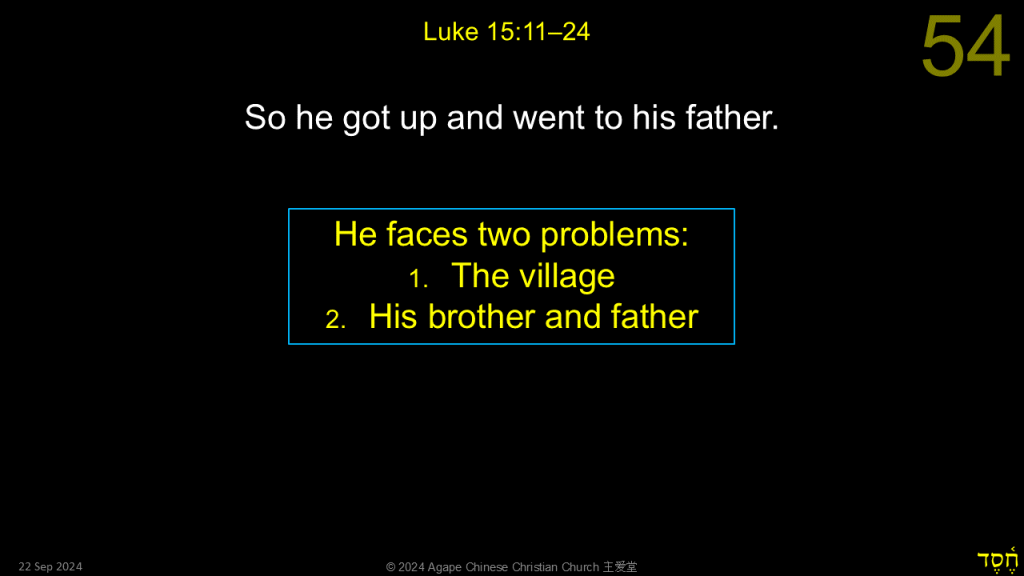
Section 4 The Amazing Reconciliation
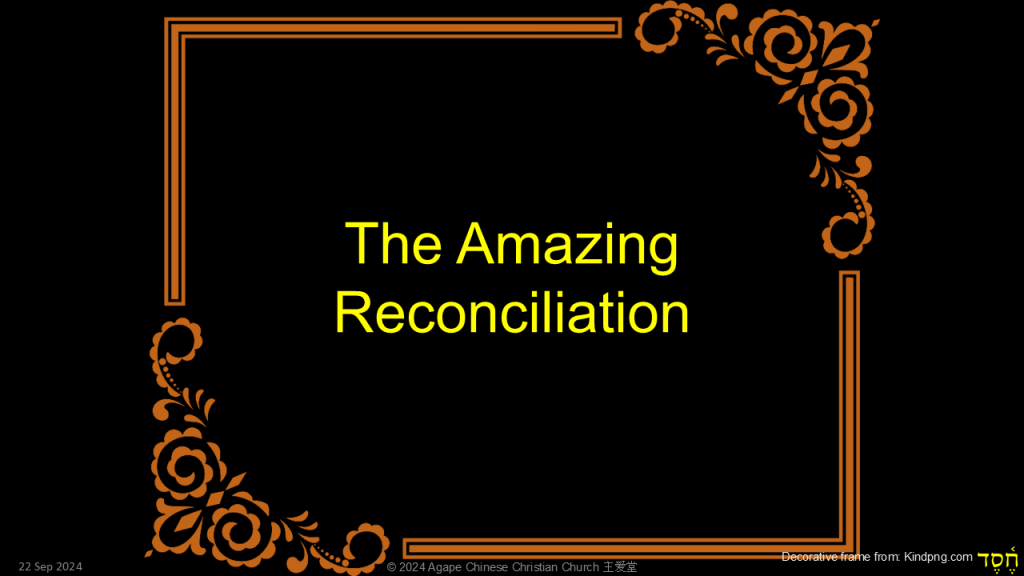
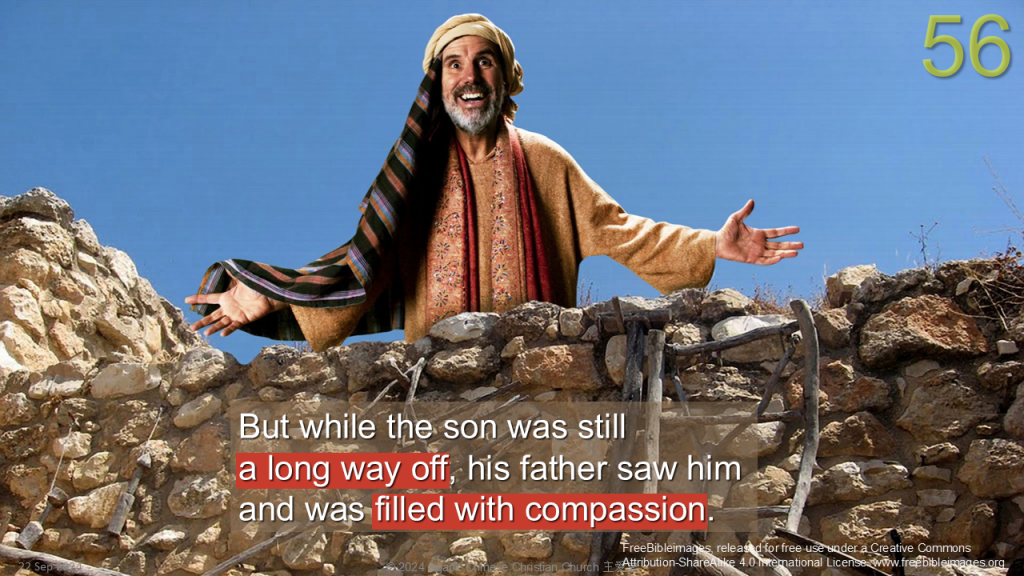
How would the father know to look for him that day? The father was watching every day, hoping to see his son return.
The father was filled with compassion. There’s no anger at the humiliation caused by his son, no thought of punishment. There’s only compassion and love.
Isn’t this exactly like God?
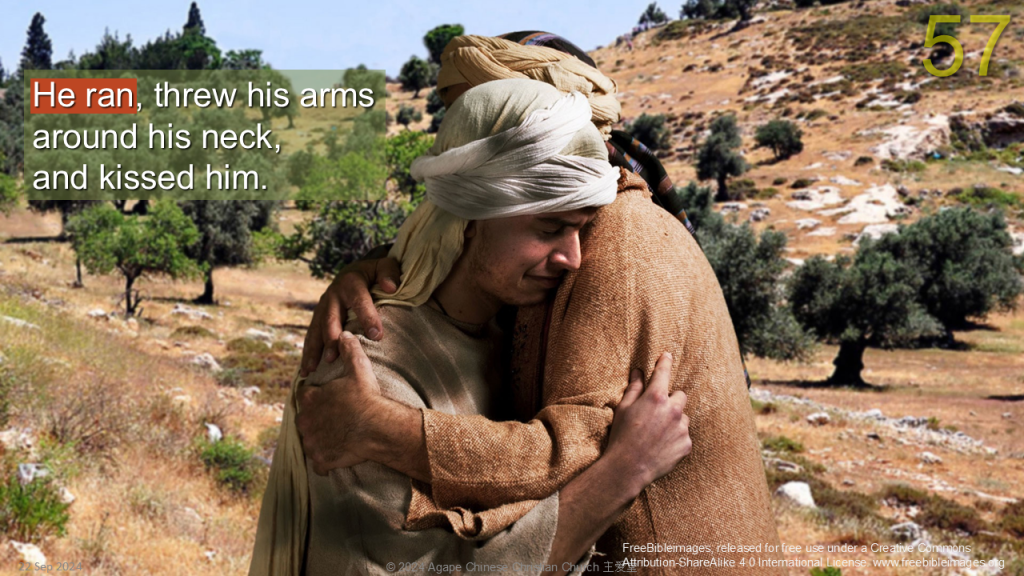
Have you ever seen a distinguished elderly gentleman run? He’d have to hike up his clothing, exposing his legs. He’ll be a laughing stock of the village!
What do you think the people in the village will do when they see him running out of his home?
They would follow him to see what’s going on!
Their attention would be on him, not on the Prodigal at the edge of the village.
The father did this to prevent the people from ganging up on his son.
The Prodigal just came from a long journey, smelling of pigs and manure, etc. But the father hugs him and kisses him!
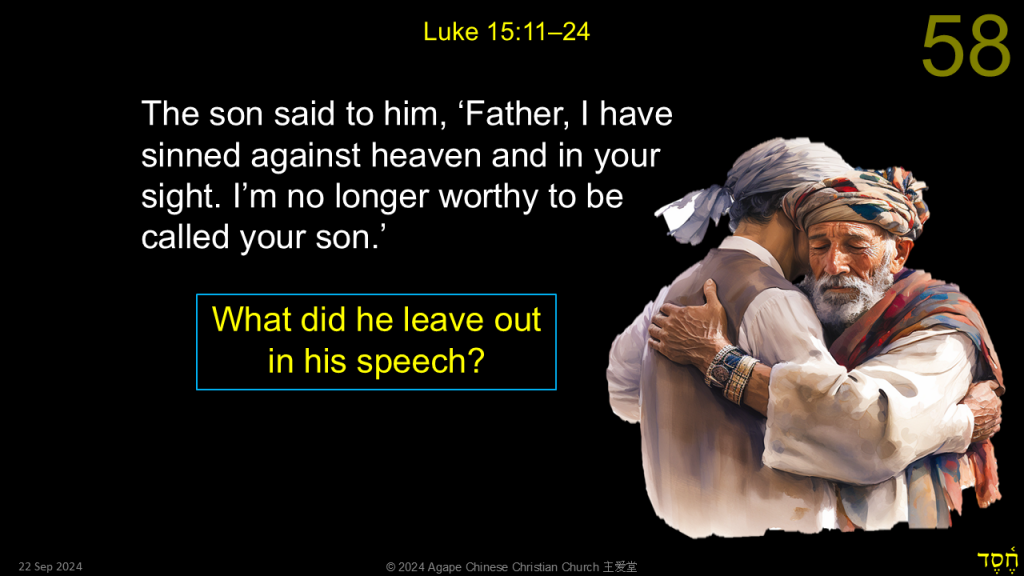
What did he leave out? He couldn’t say “let me be one of your hired workers.”
The moment he saw his father running towards him, the moment he was hugged and kissed, he knew that he’s been reconciled with his father.
He knows the wasted money isn’t the problem. He’s been found! What his father wanted more than anything is having his son back.
The Prodigal knows he’s not worthy to be called a son, but he accepts to be found.
What about ourselves? We’re also not worthy to be called God’s children, but God is always there, watching every day, looking to see if we might come back to him.
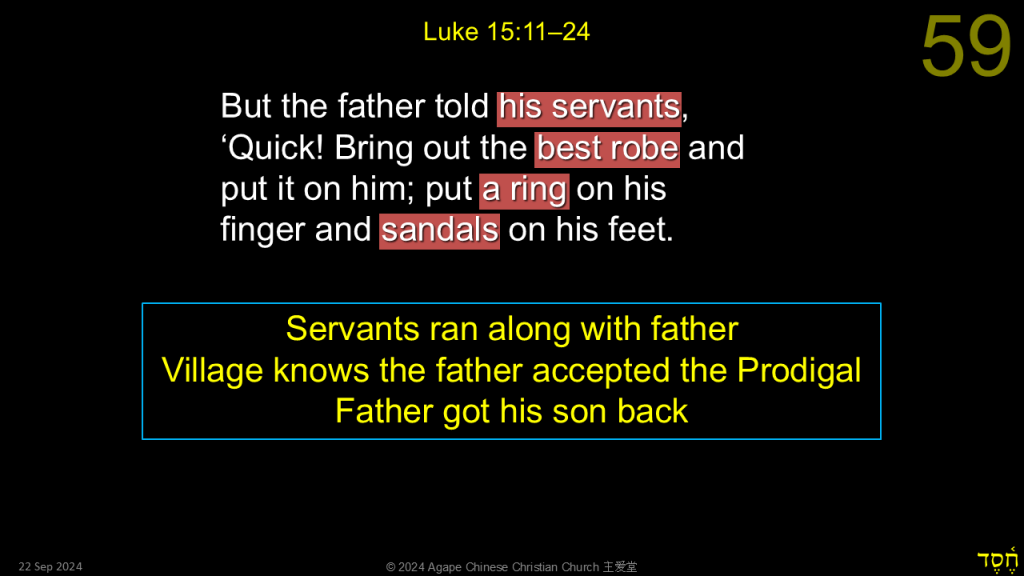
The servants ran alongside the father, so they know their master accepted the returning son as a son.
The best robe, ring, sandals, are all signs that the Prodigal is once again a beloved son of the household, a master to the servant.
The village would know this as well, because of the public display of the father’s acceptance of the son.
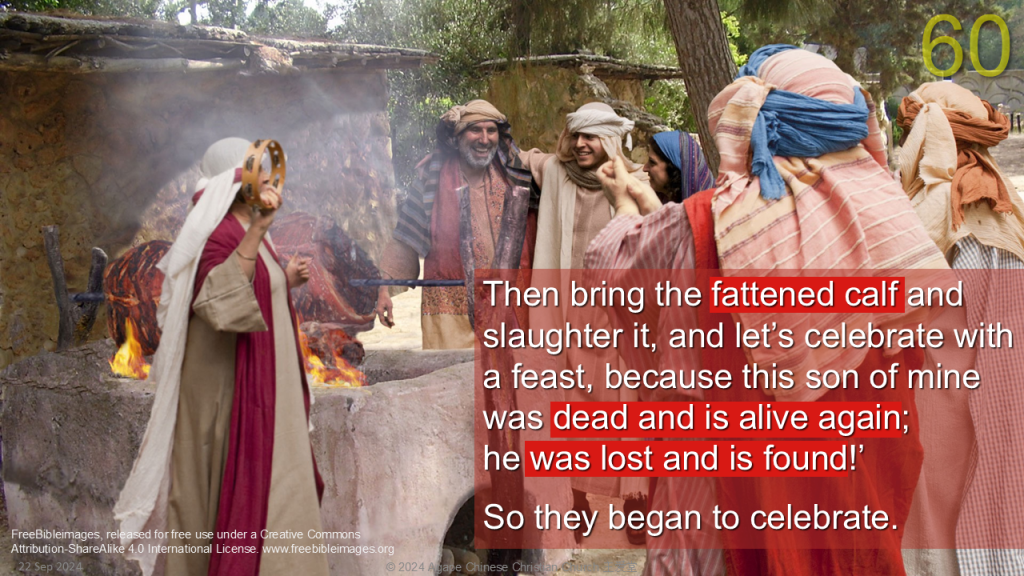
This fattened calf is a grain-fed calf, so very good meat, usually reserved for religious offerings.
I.e., the father is sparing nothing to welcome his son.
Who was the party for?
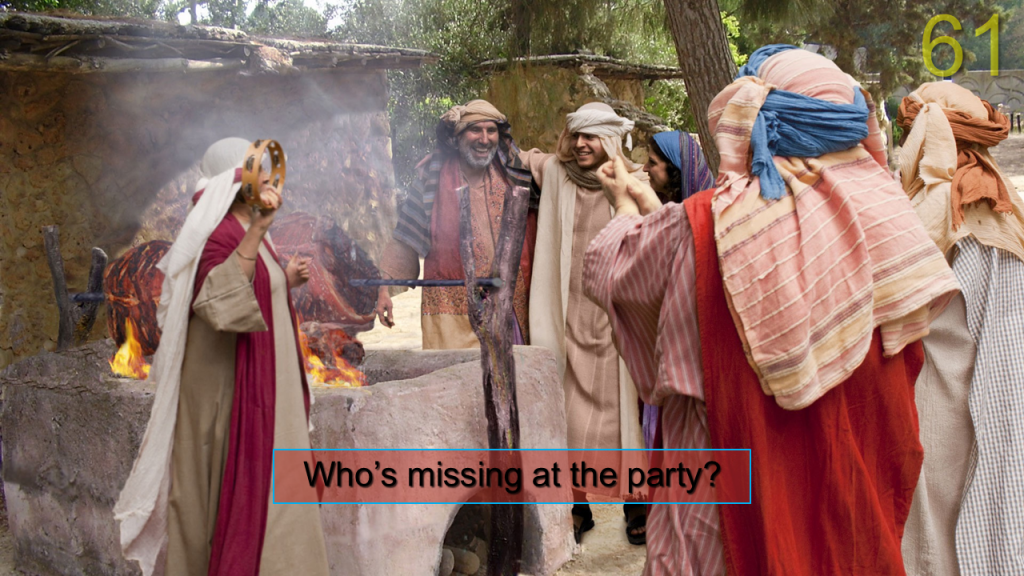
The elder son wasn’t there. The story isn’t finished.
He’ll show up as we continue the story next time.
The Prodigal was lost, but now is found. We’ll see next time that the elder son was also lost.
This parable is best described as the Parable of the Two Lost Sons.
So What?
